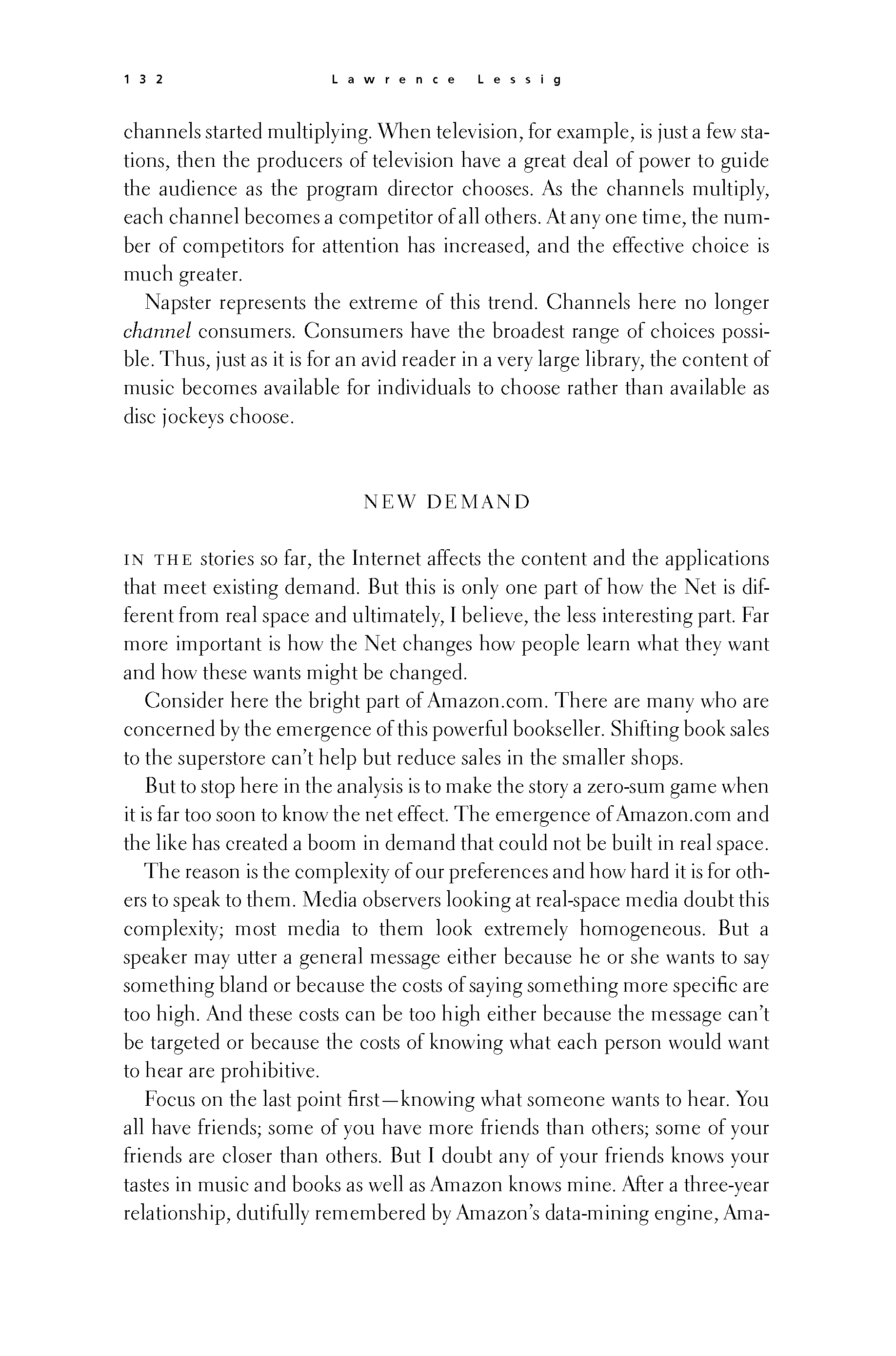 p131 _
-chap- _
toc-1 _
p132w _
toc-2 _
+chap+ _
p133
p131 _
-chap- _
toc-1 _
p132w _
toc-2 _
+chap+ _
p133
channels started multiplying. When television, for example, is just a few sta-
tions, then the producers of television have a great deal of power to guide
the audience as the program director chooses. As the channels multiply,
each channel becomes a competitor of all others. At any one time, the num-
ber of competitors for attention has increased, and the effective choice is
much greater.
Napster represents the extreme of this trend. Channels here no longer
_channel_ consumers. Consumers have the broadest range of choices possi-
ble. Thus, just as it is for an avid reader in a very large library, the content of
music becomes available for individuals to choose rather than available as
disc jockeys choose.
/tab\/tab\NEW DEMAND/tab\/tab\
In the stories so far, the Internet affects the content and the applications
that meet existing demand. But this is only one part of how the Net is dif-
ferent from real space and ultimately, I believe, the less interesting part. Far
more important is how the Net changes how people learn what they want
and how these wants might be changed.
Consider here the bright part of Amazon.com. There are many who are
concerned by the emergence of this powerful bookseller. Shifting book sales
to the superstore can't help but reduce sales in the smaller shops.
But to stop here in the analysis is to make the story a zero-sum game when
it is far too soon to know the net effect. The emergence of Amazon.com and
the like has created a boom in demand that could not be built in real space.
The reason is the complexity of our preferences and how hard it is for oth-
ers to speak to them. Media observers looking at real-space media doubt this
complexity; most media to them look extremely homogeneous. But a
speaker may utter a general message either because he or she wants to say
something bland or because the costs of saying something more specific are
too high. And these costs can be too high either because the message can't
be targeted or because the costs of knowing what each person would want
to hear are prohibitive.
Focus on the last point first -- knowing what someone wants to hear. You
all have friends; some of you have more friends than others; some of your
friends are closer than others. But I doubt any of your friends knows your
tastes in music and books as well as Amazon knows mine. After a three-year
relationship, dutifully remembered by Amazon's data-mining engine, Ama-
[[132]]
p131 _
-chap- _
toc-1 _
p132w _
toc-2 _
+chap+ _
p133